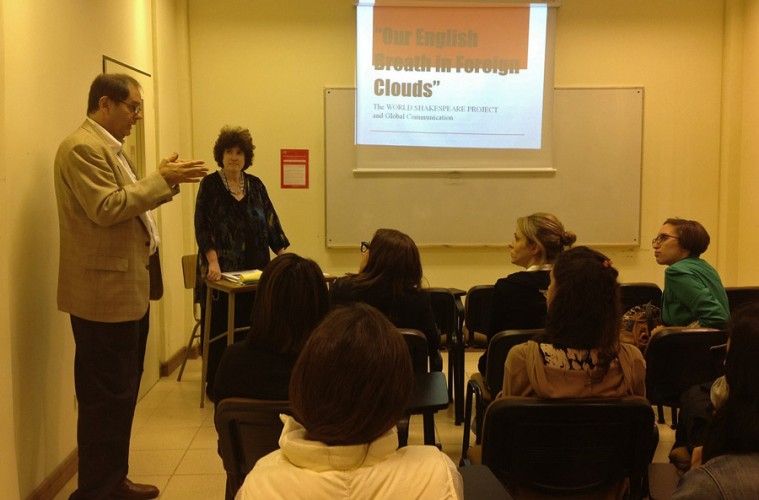La Fundación Shakespeare Argentina tiene el orgullo de implementar el proyecto internacional “World Shakespeare Project” en nuestro país. Este innovador proyecto educativo dirigido por la Dra. Sheila Cavanagh de la Universidad de Emory (EEUU) fue realizado en distintas Universidades argentinas. Con ayuda de las nuevas tecnologías, este projecto internacional lleva a conectar a estudiantes de distintos lugares del mundo a través de la obra de William Shakespeare.
Esto es posible debido al carácter universal de sus obras, pero a la vez, los estudiantes de cada región o comunidad responden e interactúan con ellas de manera particular, de acuerdo con sus propias creencias, ambientes y tradiciones. Sin duda para los participantes resulta una experiencia única y enriquecedora.
En el siguiente enlace se podrá escuchar a la Dra. Cavanagh la descripción del World Shakespeare Project WSP (con traducción) en ocasión del evento realizado por la Fundación en la Feria Internacional del Libro de Buenos Aires 2013:
En 2013 participaron en este innovador proyecto internacional estudiantes y profesores de la Facultad de Filosofía y Letras de la Universidad del Salvador (USAL) -de la Ciudad de Buenos Aires-, del Departamento de Lenguas Modernas de la Universidad Nacional de La Plata (UNLP) y también de la Facultad de Lenguas de la Universidad Nacional de Córdoba (UNC):
Mirá el video:
En 2014 celebrando el 450 aniversario del nacimiento del dramaturgo y en virtud del Acuerdo de Colaboración entre la FSA y la Universidad del Salvador se volvió a repetir la experiencia implementando en nuestro país este fascinante proyecto internacional donde los estudiantes argentinos compartieron “aulas virtuales” en videoconferencias con alumnos norteamericanos durante los Meses de Mayo y Noviembre de 2014.
Compartimos las fotos de la interesante sesión internacional del WSP y en la Facultad de Filosofía y Letras de la Universidad del Salvador donde concurrieron alumnos y profesores de la Facultad de Lenguas y de la carrera de Arte Dramático de la USAL. Durante la misma se trabajó sobre “As You Like It”, con dos actores invitados, Maia Francia y Sebastián Suñé quienes interpretan a Orlando y Rosalinda en la versión “Como Les Guste” dirigida por Jorge Azurmendi.
Los actores, junto a un colega miembro de la “Georgia Shakespeare Co” compartieron sus experiencias y reflexiones sobre el texto, su contemporaneidad y aspectos propios de las características de la puesta de la versión argentina. Los estudiantes realizaron una lectura conjunta de pasajes seleccionados del texto original en inglé para luego proceder al análisis y debate respecto del contenido y resonancia actual de la pieza disfrutando de otra inolvidable experiencia internacional.
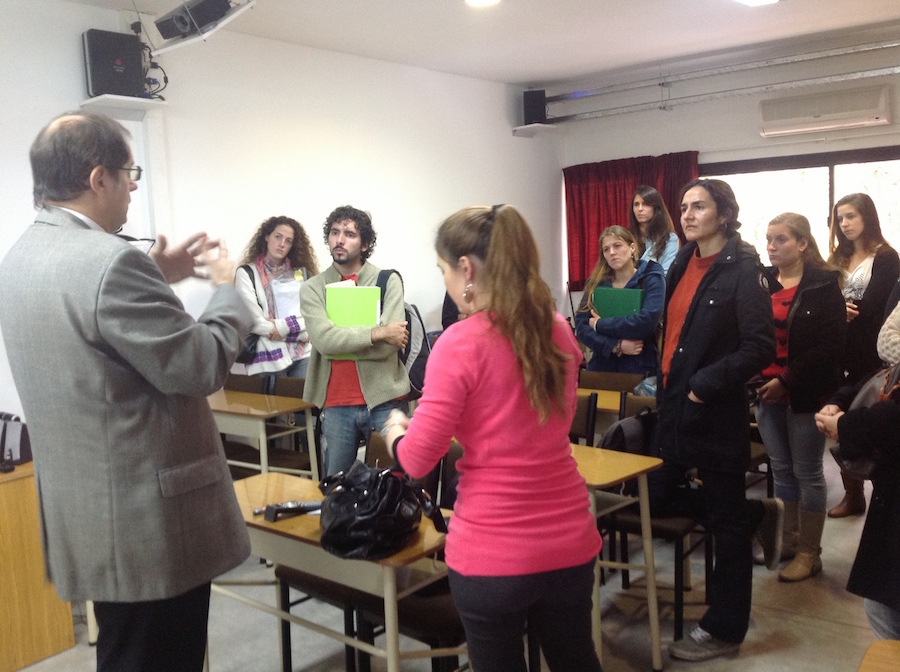
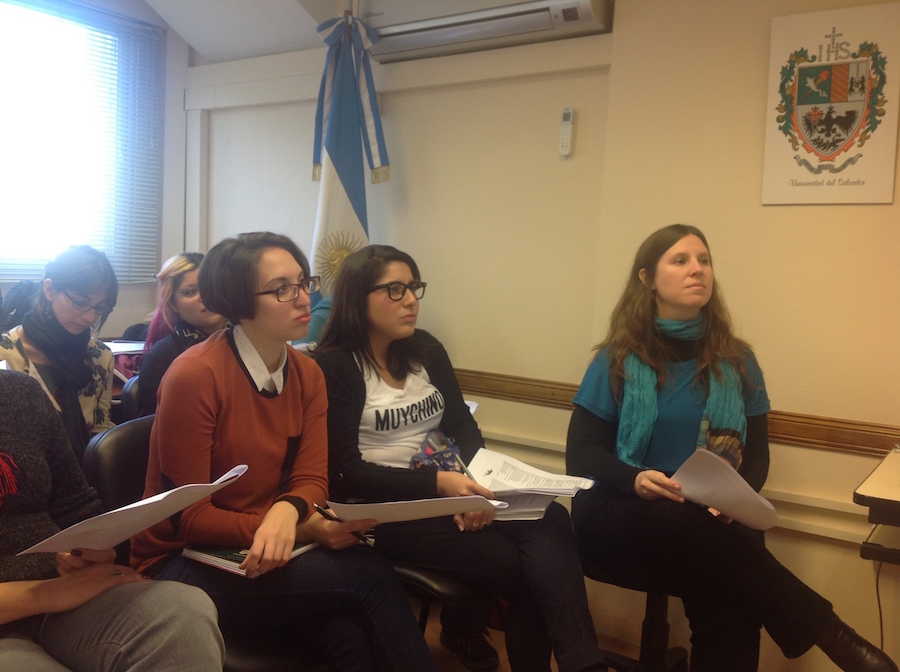
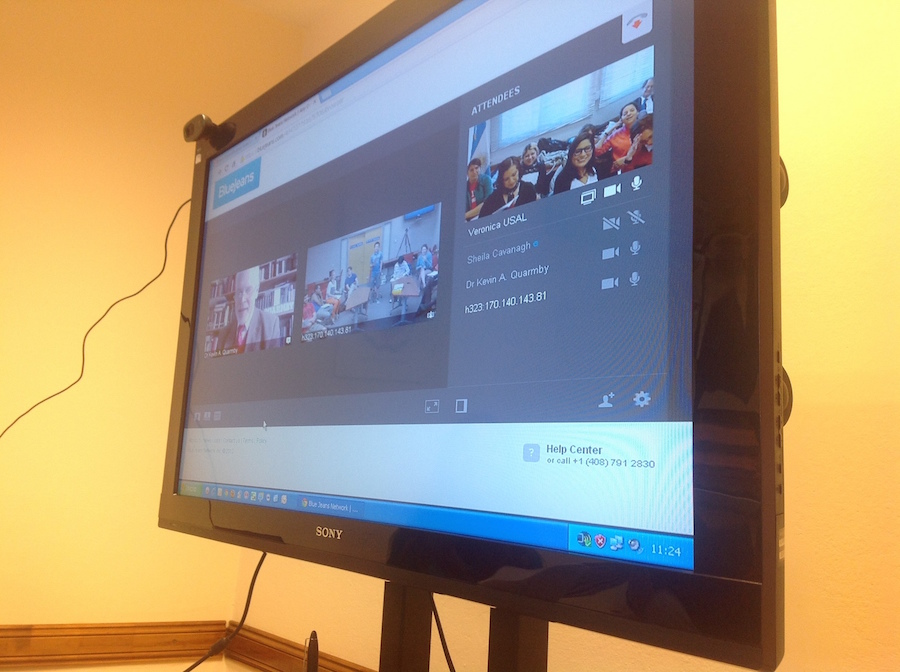
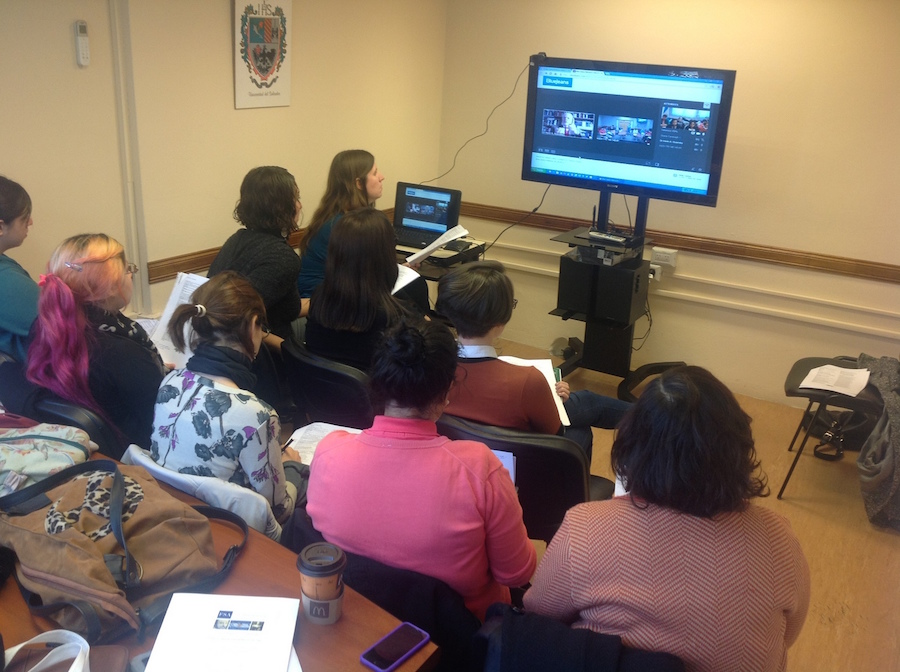
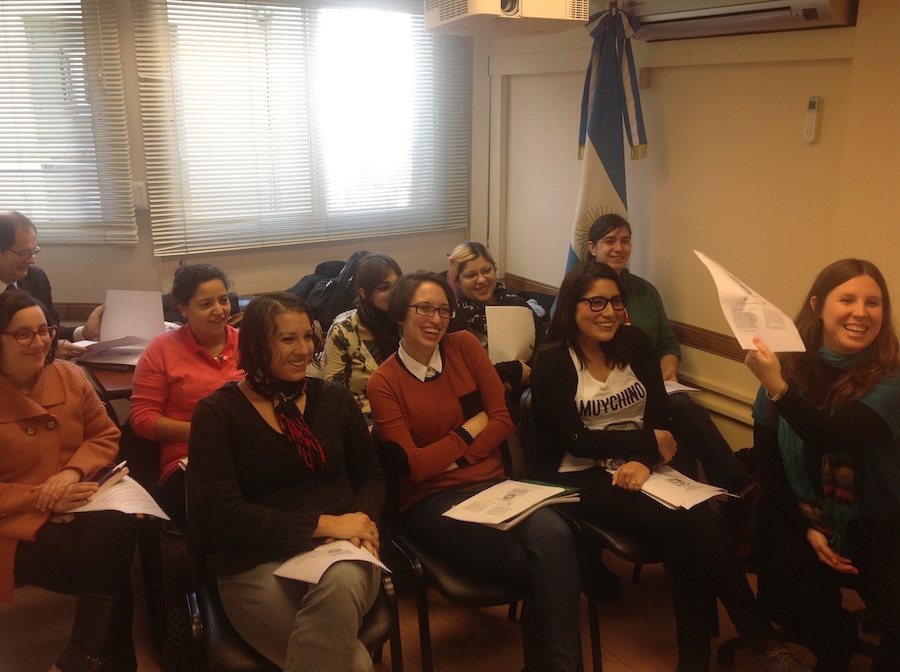 Compartimos un extracto del artículo de la Dra. Cavanagh publicado en la Plataforma educativa Project Muse “Journal for Early Modern Cultural Studies” Volumen 13 Number 4 Fall 2013
Compartimos un extracto del artículo de la Dra. Cavanagh publicado en la Plataforma educativa Project Muse “Journal for Early Modern Cultural Studies” Volumen 13 Number 4 Fall 2013
http://muse.jhu.edu/journals/journal_for_early_modern_cultural_studies/v013/13.4.cavanagh.html
We share the article on the
The Curiosity of Nations:
The World Shakespeare Project (WSP)—www.worldshakespeareproject.org—co-directed by Sheila T. Cavanagh and Kevin Quarmby of Emory University, is crafting a model for global twenty-first-century higher education through an interconnected series of live, interactive collaborations that cross international, institutional, disciplinary, sociocultural, religious, linguistic, economic, and other disparate academic divides. As the recent Observatory on Borderless Higher Education Report suggests, traditional conceptualizations of tertiary education are rapidly becoming outmoded, but new educational constellations are often problematic:
The twenty-first century offers complex financial, technological, and internationalization issues that demand more rapid change than American universities traditionally provide. In response to this need, the WSP is creating, evaluating, and disseminating a multi-faceted educational structure that can be adapted for use globally and across the disciplines. It was recognized in 2012 as the only recipient of Emory University Research Committee’s “High Risk/ High Potential Initiative,” which was established to promote non-traditional interdisciplinary collaborations, innovative methods, and inquiries regarding emerging areas. It has also received several other internal grants and a US Challenge Grant from the Royal Society of the Arts in order to expand its partnerships with North American Indian Colleges.
The WSP links disparate international Shakespearean faculty and students together electronically. The expertise of Emory’s Educational Technology staff allows us to establish live communication with institutions lacking comparable facilities. Cavanagh is WSP’s founding director, and she has made regular academic visits to India since 2000. Consequently, the WSP has forged numerous connections between Atlanta and communities in India, including, for example, tribal colleges serving first-generation learners in West Bengal and other regions in Eastern India. The WSP also possesses significant links with the United Kingdom, drawing in part from Quarmby’s lengthy prior career as a professional actor in London. In addition, the WSP currently works with Université Hassan II and Al Akhawayn University in Morocco, with universities associated with Fundación Shakespeare Argentina, and with Shakespearean faculty and students in Brazil. With the cooperation of the American Indian Higher Education Consortium, it has also expanded its collaborative network to reach American Tribal Colleges, such as Cankdeska Cikana Community College in North Dakota and Saginaw Chippewa Tribal College in Michigan. In addition, we are partnering with Gretchen Minton from Montana State University and Scott Jackson from Shakespeare Notre Dame to investigate the further inclusion of western American Indian students. These tribal connections, along with our growing international community, deepen all WSP collaborative experiences. Our live and electronic guest lecturers as well as our undergraduate research, internship, collaborative, and exchange opportunities enable us to involve an eclectic local and “virtual” group in meaningful ways. Emory’s Halle Institute for Global Learning and its Hightower Fund, for example, have generously sponsored residencies with London stage and opera director Stephen Unwin and with Peabody Award-winning documentary maker Steve Rowland. Future residencies, such as the 2013 visits of [End Page 122] Shakespeare in Prison directors Curt Tofteland and Tom Magill, will broaden the diverse scope of WSP classroom endeavors.
WSP sessions typically involve live videoconference discussions and performance exercises shared between faculty and students in each location. For some of our partners, Shakespeare holds an important place in the curriculum; for others, these mutual classes primarily promote internationalization efforts or offer opportunities to join broad educational discussions. We aim to create a widely accessible learning environment, which constitutes one of the most challenging, but essential, aspects of our venture. Some of the international and tribal college students are the first in their families to receive a formal education and have had limited travel experiences. Other WSPstudents live in cosmopolitan regions, such as Kolkata or Casablanca. Most of our international partners encounter English as non-native speakers. Each student population, however, whether at Emory…
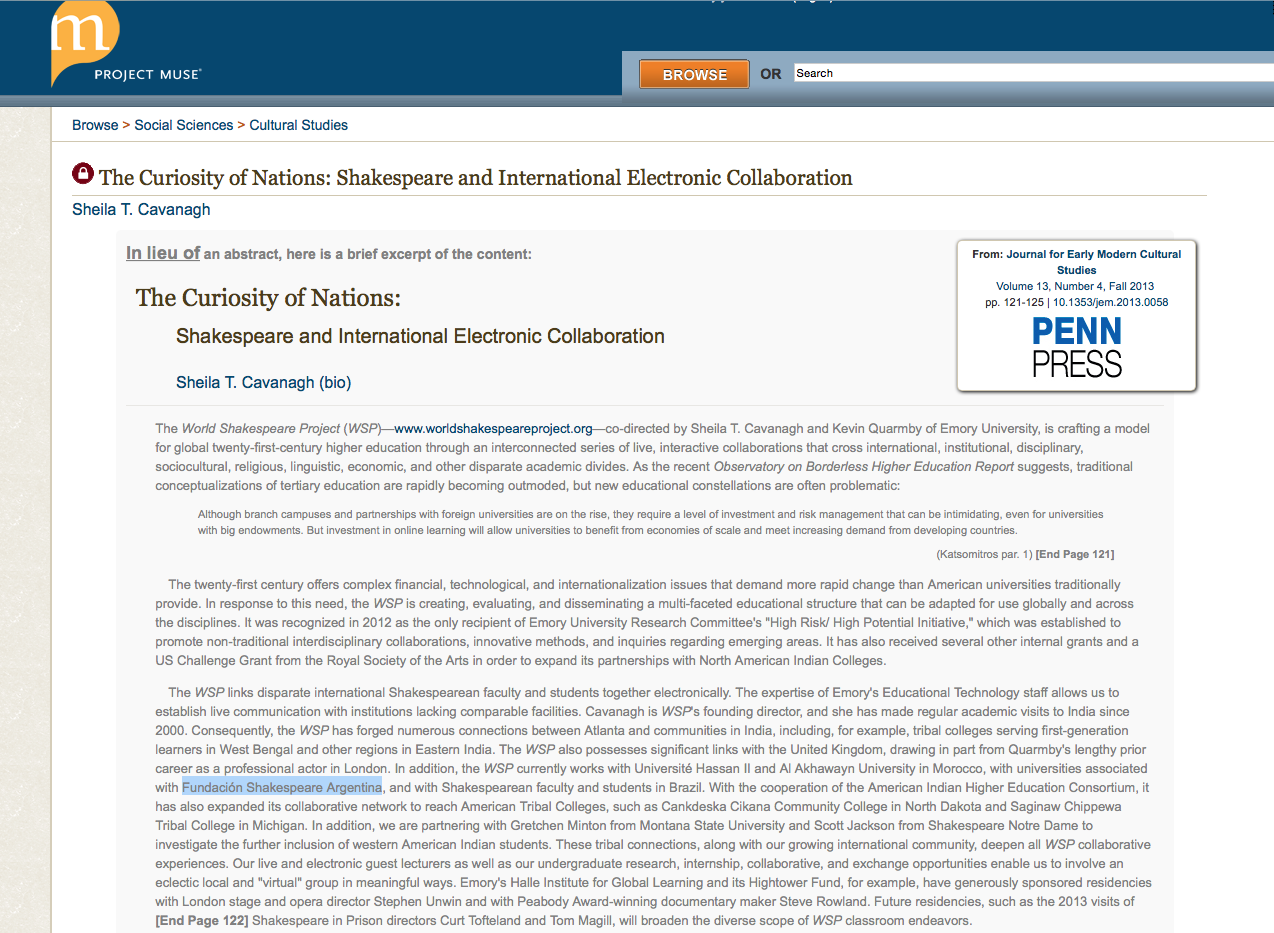
http://muse.jhu.edu/journals/journal_for_early_modern_cultural_studies/v013/13.4.cavanagh.html
Artículo relacionado
Entrevista de la FSA a la Dra Sheila Cavanah en 2016:



